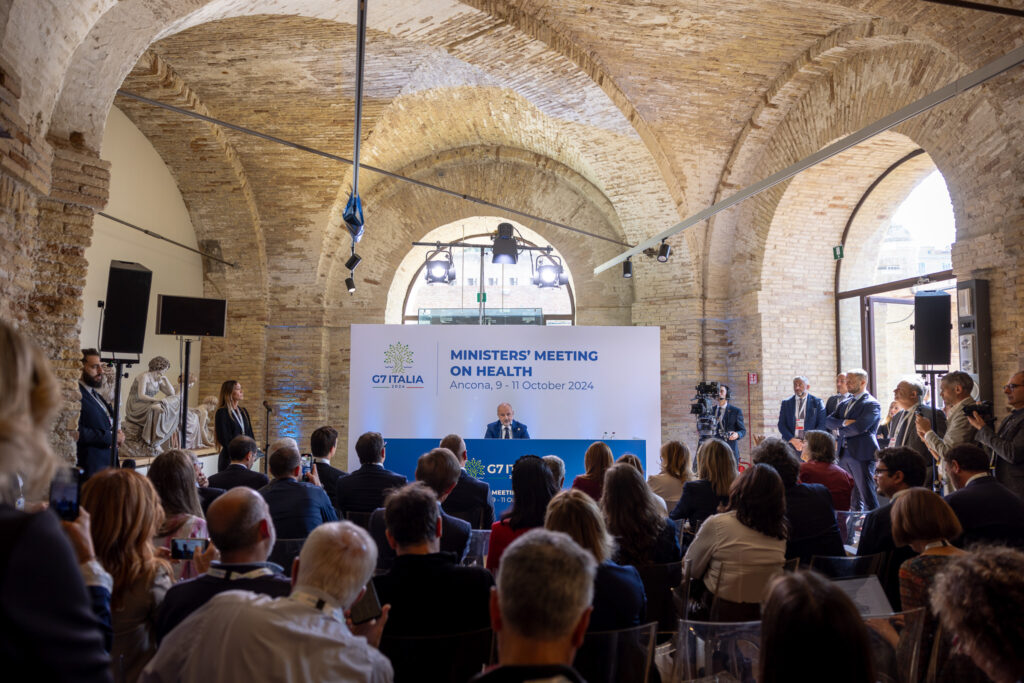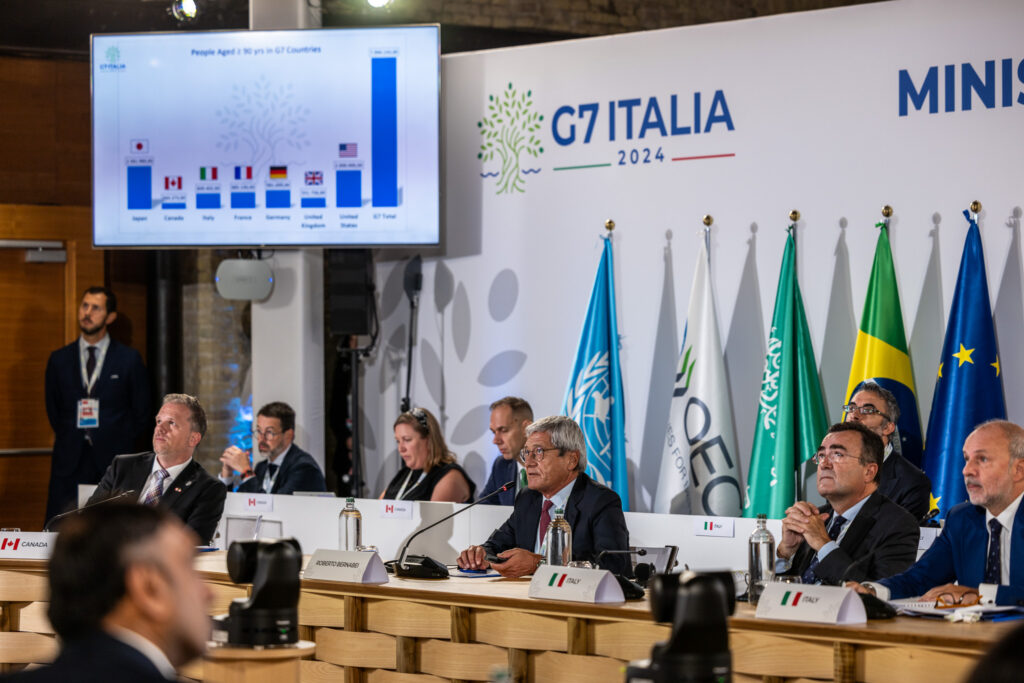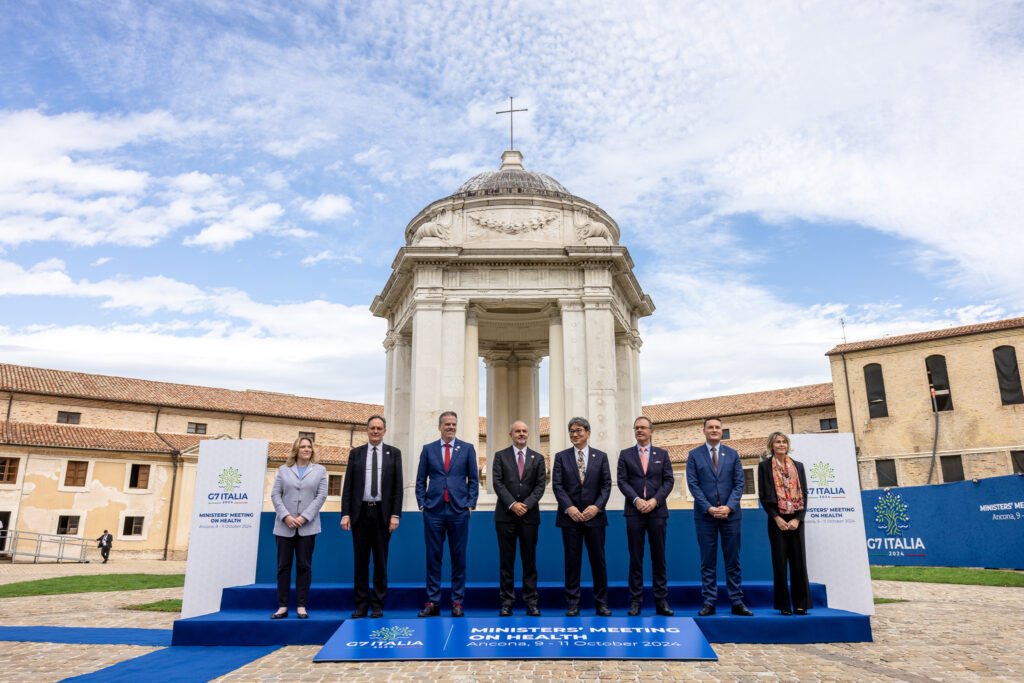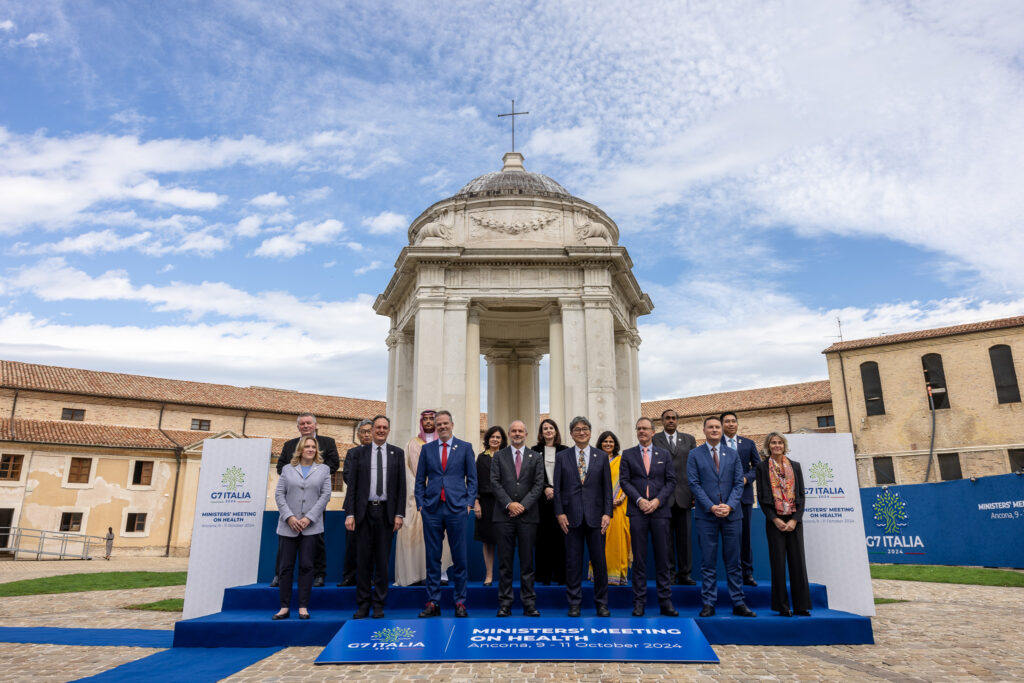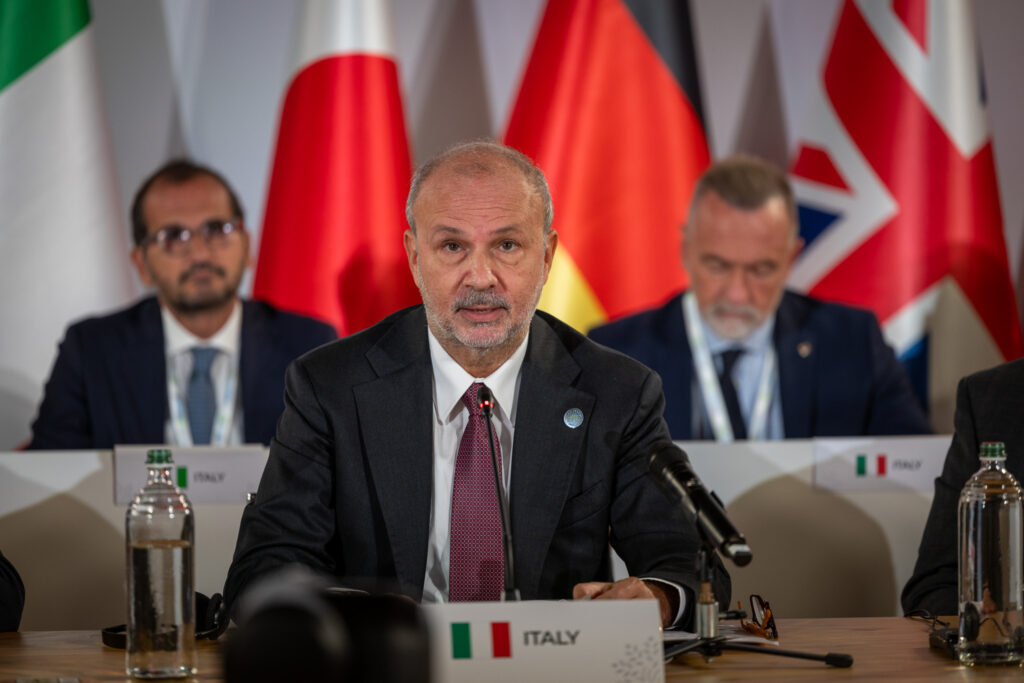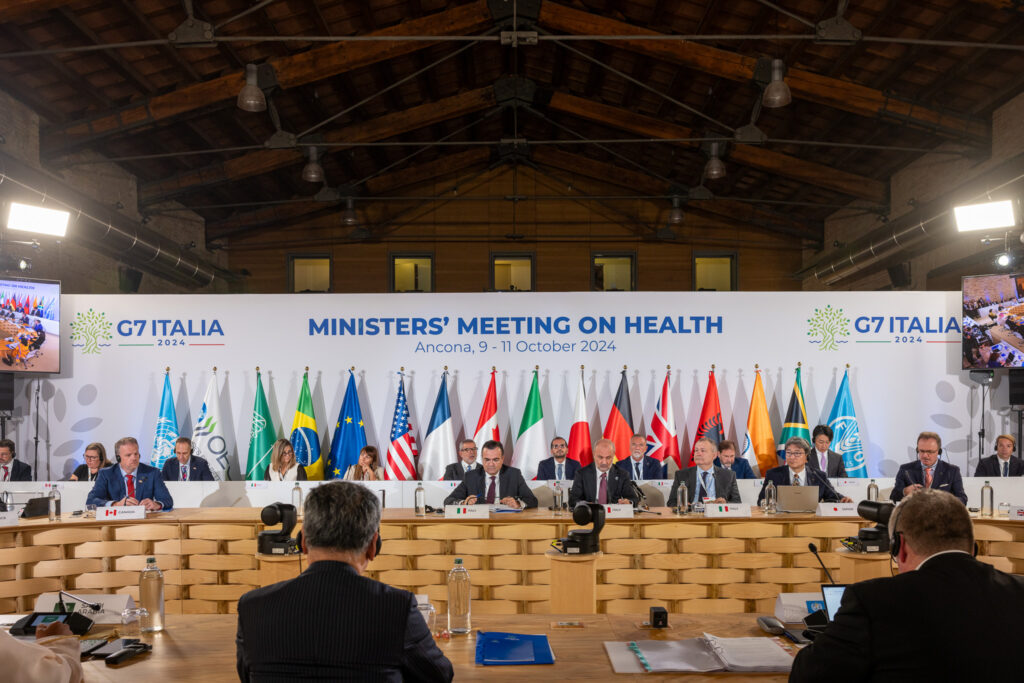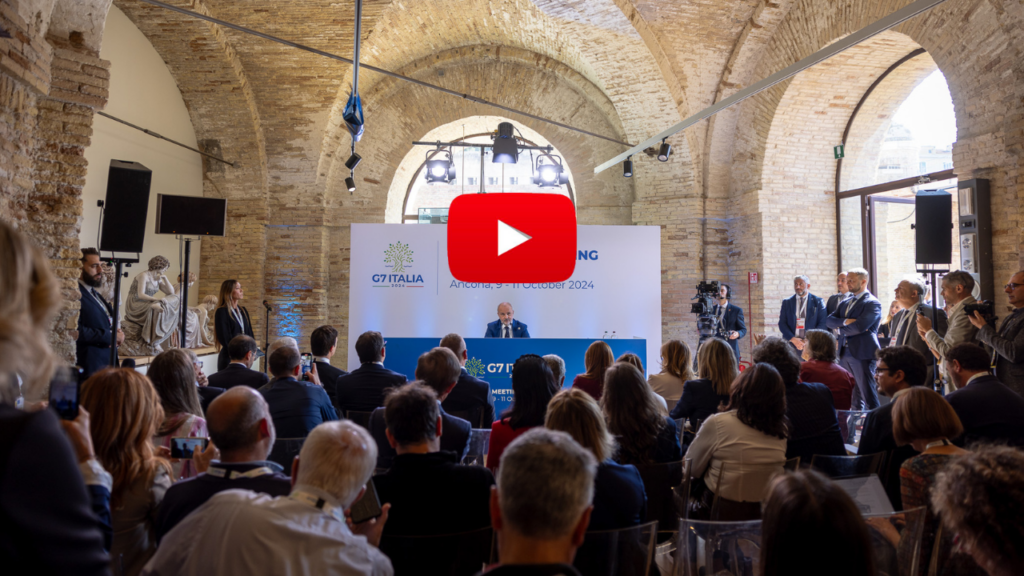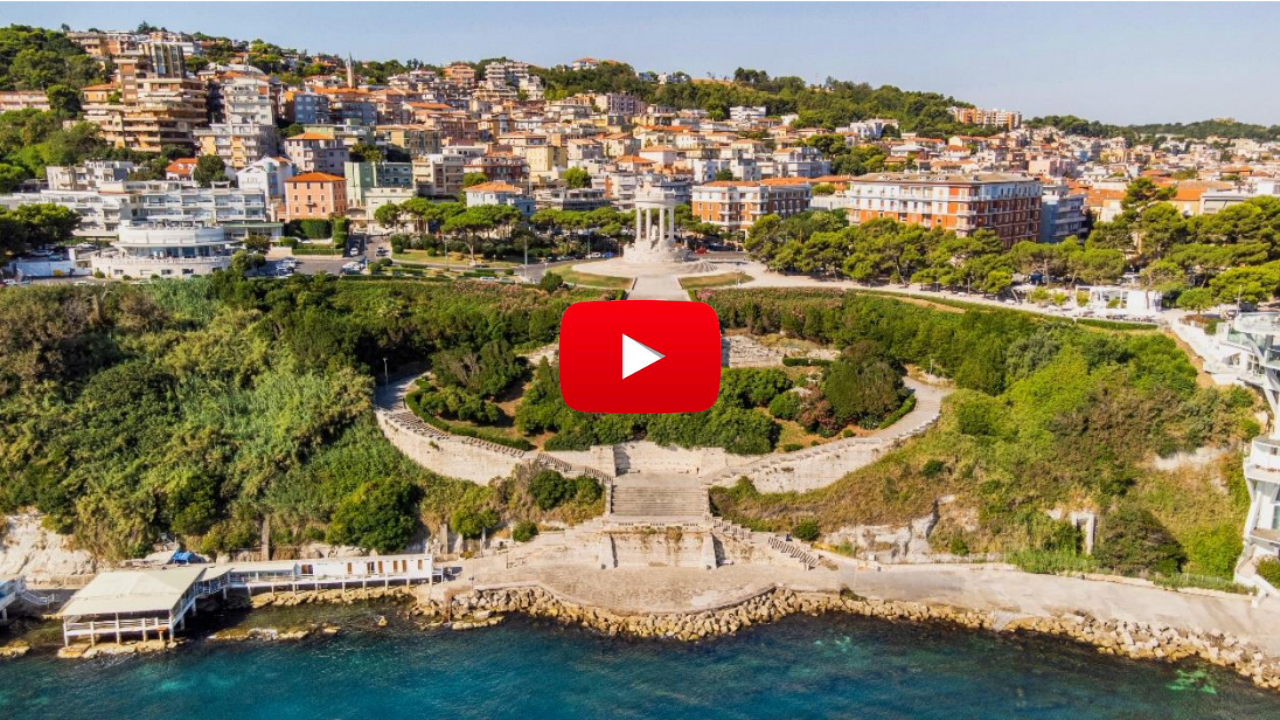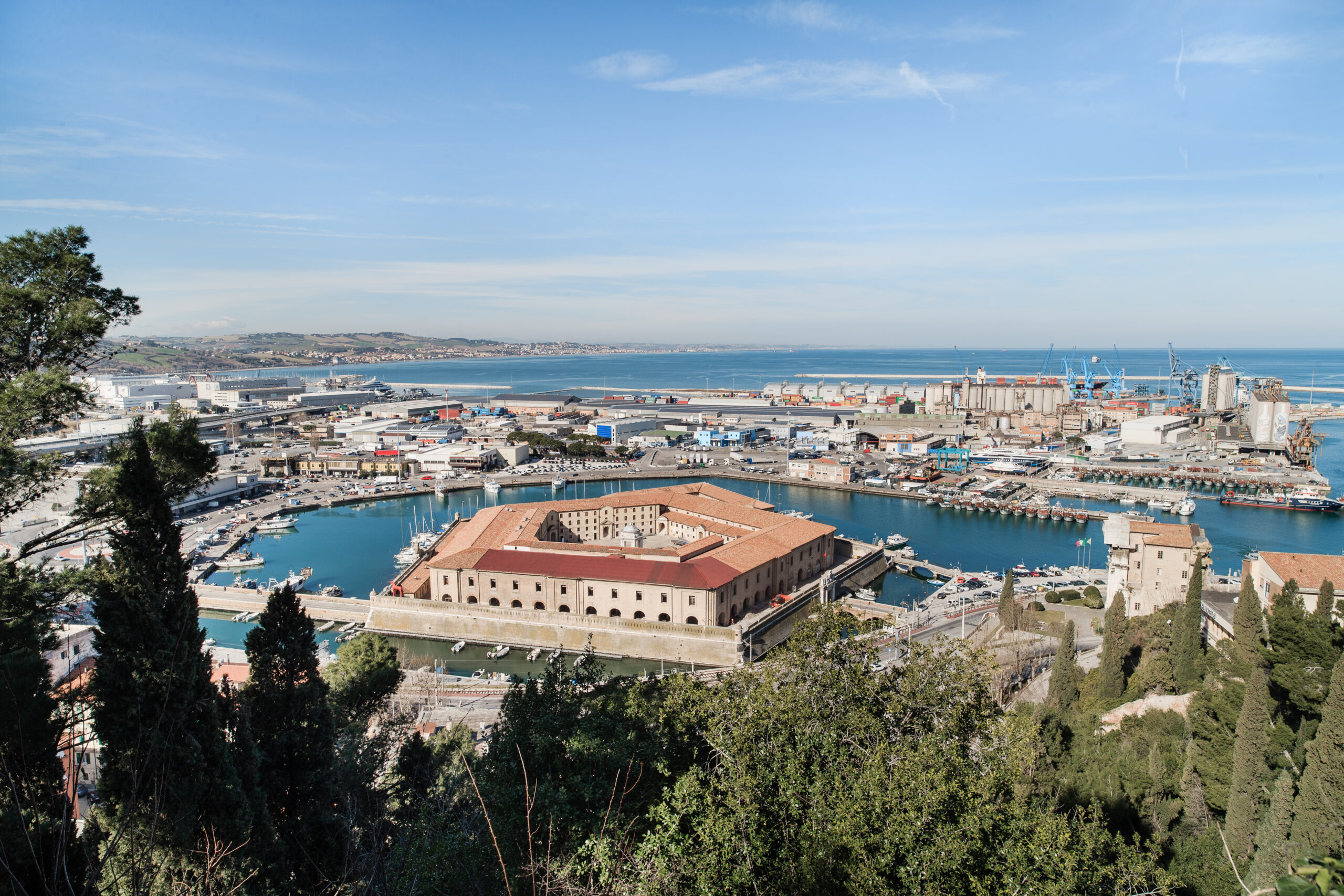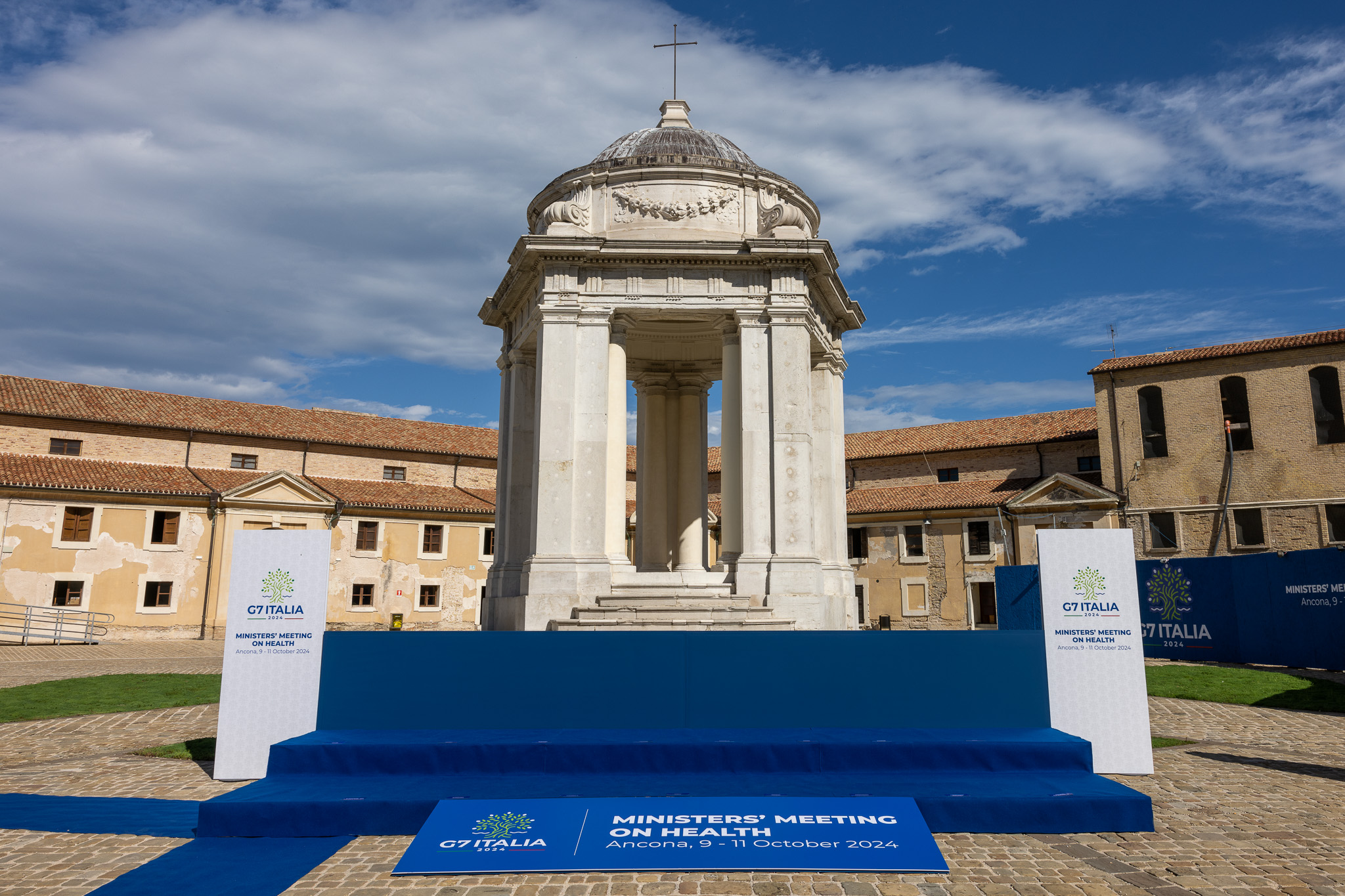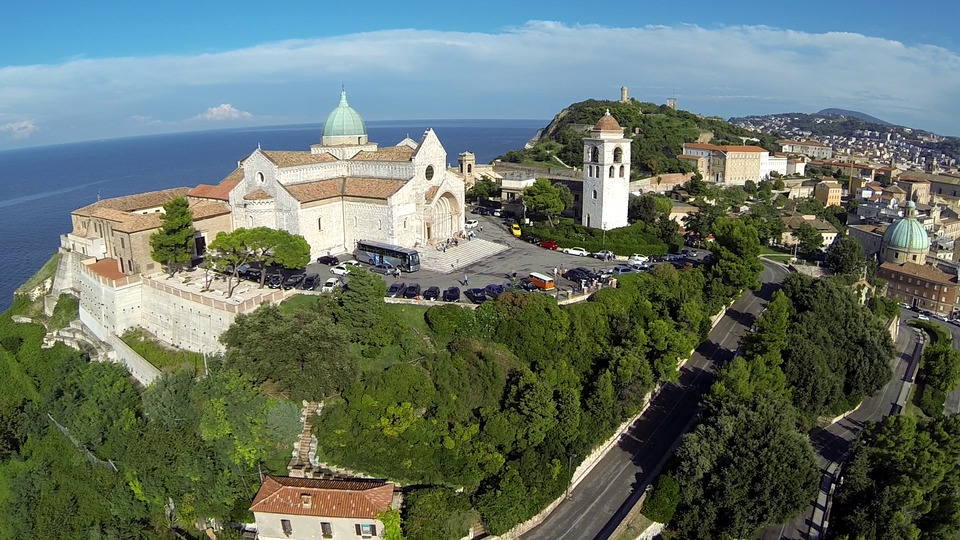Ministerial meeting on Health
ANCONA9-10-11 October
The G7 Health Ministers, gathered in Ancona from 9 to 11 October, adopted a Joint Declaration, which Minister Orazio Schillaci described as “ambitious and which includes and summarises the common stances on all the issues addressed during these months”.
One of the working sessions took place together with the G7 Finance Ministers. During this joint meeting, Italy announced the funding of $21 million over the next three years for CARB-X, a global non-profit partnership that supports the development of new antibiotics.
Another significant result of the meeting was the approval of a policy brief on Artificial Intelligence and Health.
Documents
G7 Health Ministers' Communiqué - pdf: opens a new window G7 Policy brief on Artificial Intelligence - pdf: opens a new windowFoto
Video
The host city
Ancona
Situated towards the Balkans and perched on the promontory of Monte Conero, Ancona was founded by the Greeks in 387 BC with the name Ankon (“elbow”), due to the shape of the promontory it occupies. Due to its unique geographical position, Ancona is flanked by the sea to both the east and west, allowing for both sunrises and sunsets over the water, a unique feature among all cities along the Adriatic coast.
As the largest urban centre by size and population in the Marche region, Ancona has grown around a vibrant port that serves as a key crossroads for transporting goods and people across the Mediterranean. Due to its strategic location, Ancona and the Marche region have fostered a strong ecosystem of businesses, especially small and medium-sized enterprises (SMEs), with a production model centred on manufacturing and excellence districts that create renowned Made in Italy products exported worldwide.
Alongside its economic dynamism, Ancona's millennia-old history continues to thrive today. The most iconic monument is the Cathedral of San Ciriaco, boasting a façade of white and pink marble with a Greek cross layout. Another notable symbol is the Arch of Trajan, built in 115 AD in honour of the Roman Emperor Trajan. The Loggia dei Mercanti, another historic monument built in the 15th century for commercial and navigational activities, hosted one of the institutional meetings among G7 Health Ministers.
The Carlo Urbani Museum in Castelplanio, Ancona province, is related to global health themes addressed during the G7 Ministerial meeting. Inaugurated in April 2023, it honours the Italian microbiologist who first identified and classified SARS (Severe Acute Respiratory Syndrome), which was central to the epidemic that emerged between 2002 and 2003 and ultimately claimed his life. According to the WHO, the anti-pandemic method he developed in 2003 continues to serve as an international protocol for combating similar diseases.
